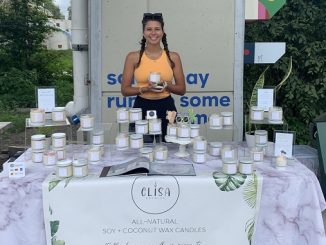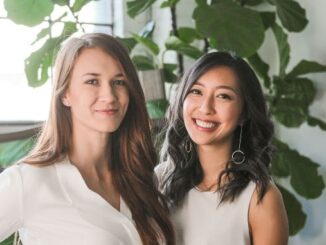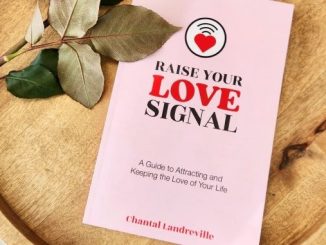Discover the essence of local and eco-friendly herbal care at Hearthstone Herbal Farm & Apothecary, a bio-regional apothecary specializing in handcrafted, plant-based skincare and wellness products. Botanical traditions meet modern sustainability, offering a range of thoughtfully made herbal products that elevate your self-care routine while respecting the local ecosystem. We spoke to Gwen McCrone, the founder of Hearthstone Herbal Farm & Apothecary, to learn more about her business.
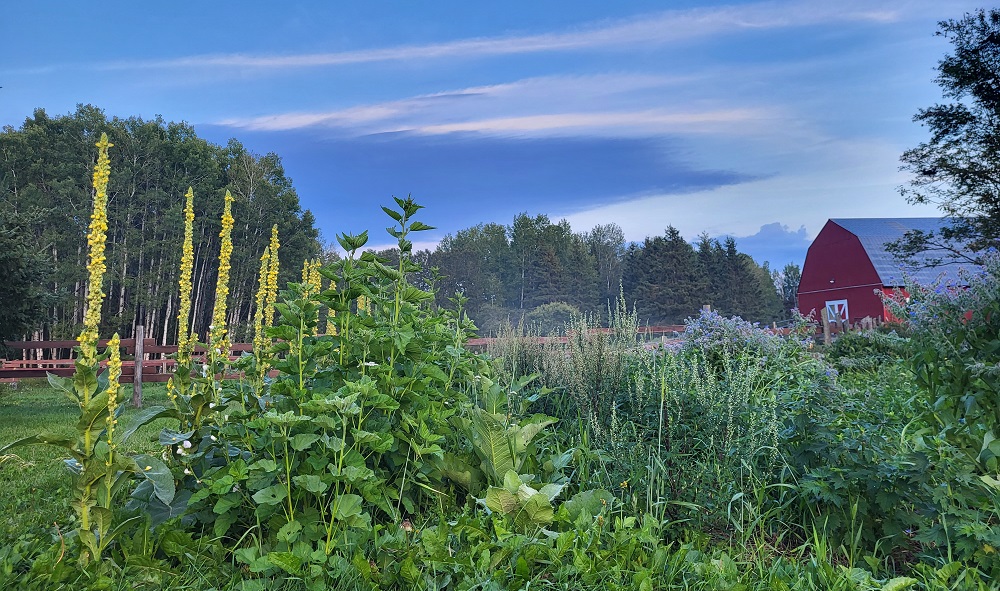
What is your business called and what does it do?
Hearthstone Herbal Farm & Apothecary is a land-based, bio-regional herbal apothecary offering a range of botanically infused, hand-crafted herbal products. The aim is to provide quality and affordable plant-based skincare & wellness options that are truly eco-friendly and local. All of our products are made either from plants grown in our chemical-free garden, or are mindfully wild harvested in the boreal forest and surrounding wild spaces on the Northern shore of Gitchi-Gami (Lake Superior). The ethos of Hearthstone Herbal is that of land stewardship, relationship with the plants themselves, approaching wellness holistically, and accessibility.
What made you want to do this work?
This is a multi-part answer that I’ve tried to make concise, so work with whatever you need to from this:
I’ve been interested in wild spaces and plants for as long as I can remember, but I didn’t start studying & practising herbalism more earnestly until my high school years. My mother was battling Lyme disease and didn’t receive much help from our GP or other specialists (they wouldn’t diagnose her with Lyme despite positive tests from a specialized lab in the U.S.). Because of this she was in a way forced to look to “alternative medicine” – that millennia-old practice of approaching health through diet and the use of medicinal botanicals, among other things. This worked incredibly well for her, and it made me curious as to how she was able to heal her body using plants. It wasn’t something that had ever really been on my radar; at the time, my awareness of herbs was that they were used for tasty teas before bed and for cooking.
I began learning about herbalism on my own, and had a lot of fun with making herbal preparations at home for a few years. But when it came time to go to post-secondary in 2016, I didn’t choose to become a full-time herbalist. I entered the forestry industry and worked in this area for about 5 years before I decided it was no longer for me.
Unfortunately, my mother passed away in the fall of 2021. At this time I was begrudgingly finishing my BSc in forestry, already teetering over the fence, trying to decide if this was the field I wanted to stay in. My mother’s death prompted me to critically re-evaluate my life as it stood at that time, eventually leading me to leave university. In that same month, I enrolled in a distance-learning herbal medicine diploma program, and a few months after I started my business.
What problem did you want to solve with the business?
I always think to myself that my business is as much a spiritual endeavour as it is a goal-driven one. In a practical sense, the core function of Hearthstone Herbal is to craft botanical products and deliver herbal learning workshops. But it’s so much more than that.
Alongside what I listed above, I felt deep in my core that this was something I needed to do to help myself & others reconnect to our ancestral roots, to older ways of being and of existing in right-relationship with the land around us. Because herbalism is a land-based practice that seeks to harmonize not only personal health, but also planetary and community health, I feel that it is a way in which people can remember how to be human. It teaches us how to tend to the land with respect, tend to ourselves in mind, body and spirit, and tend to our community when others are unwell.
The problem I want to solve with this business, in this way, is the pervasive disconnect we see happening to the collective consciousness; a lack of awareness of the consequences of our actions, and of how what we believe to be true about the world influences our subconscious and conscious decisions, which in turn impact our planet, our communities, and our own selves. The work I do also seeks to remedy the disregard for the ways in which we are a part of the expansive fabric weaving together our natural environments. Of course, more and more people not immediately interested in “hippie stuff” have been becoming aware of all of this, which is moving, but we still have a long way to go.
Who are your clientele/demographics?
The majority of my customers are women, but of a wide range of ages, which has been nice to see. Naturally, my customers are drawn to what I do because they’re interested in sustainable and eco-friendly business practices, want to use products that are completely free of any artificial or potentially harmful substances, and want to connect more with plants specifically. I have found I’ve drawn in customers I wouldn’t have expected to be interested in my products, not because they’re in tune with what I’ve touched on so far, but because they simply need something for a straightforward purpose, or want a ‘clean’ beauty product. This has been so rewarding though because then I (usually) get to witness the moment they realize what they’re purchasing is so much more than just a product to consume and forget about.
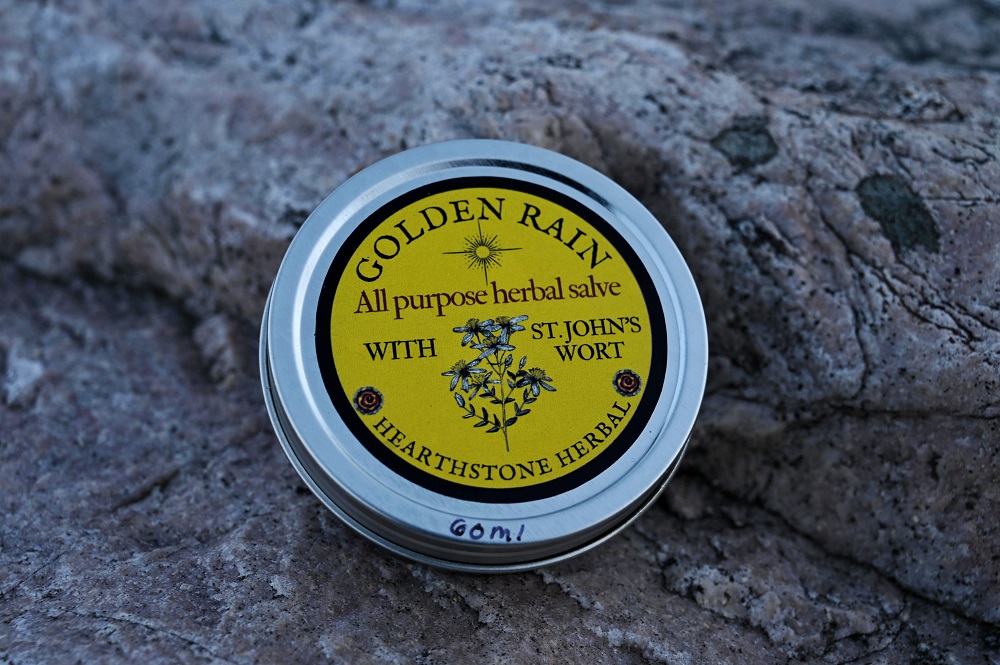
How does your business make money? How does it work?
Right now the business makes most of its money through selling physical products at artisan and craft markets from the late spring to early winter months, but I’ve been learning how to get better at choosing which markets are worth the time, since in a smaller community they’re not a “one size fits all” environment. I also have an online webstore, which draws traffic after I’ve attended a market, and performs well during the holiday season thanks largely due to existing customers I’ve been able to keep through personal engagement and word-of-mouth referrals.
This year, I discovered that running hands-on herbal learning workshops is an incredibly rewarding and cup-filling part of the business that I plan on keeping, and hope to expand in years to come. It seems that in some ways, it’s easier to persuade people to spend their hard-earned money on learning something new and having a hands-on experience, than it is to buy some random product they may have never even seen before.
The product formulation, crafting, labelling, bottling, marketing, and delivery is all done by me, and I do it outside of my 9-5 day job, so it is a lot of work. But I love it.
Where in the city can we find your profession?
Hearthstone Herbal is located about 15 minutes north of Thunder Bay, ON. The farm is rural, but via markets and other in-person events it operates throughout almost the entire region that comprises the “Greater Thunder Bay Area” as I call it.
What is the best question a prospective customer could ask a member of your profession when comparing services? Give the answer as well.
In my mind, this would be something along the lines of “How do you source the botanicals you use in your products, and what are your extraction processes while crafting your products?”
The short answer for my business is that I grow or ethically wild harvest all of the plant materials I work with. That way, I know exactly where they came from, how they were grown, and I’m not increasing my carbon footprint by importing herbs from across the globe.
When it comes to the crafting & processing of the products, I follow a more “long & slow” method favoured by most clinical herbalists (not to say I am one currently), which allows for better preservation and extraction of the often delicate phytochemicals we’re aiming to harness in the product base.
What is the best part about what you do? What is the worst part?
The best part is doing what speaks to my soul – spending time outside, enveloping my senses with the colours and smells and tastes of plants, being in awe of the crafting process every time, and seeing people learn more about how to use herbs effectively and safely in their own homes.
The hardest part has been trying to anticipate what people are interested in as far as products are concerned, and to run an entirely one-person show that handles every single nitty gritty detail of the business.
What is your favourite joke about your own profession?
I love the jokes I see circulating amongst friends & families of herbalists that their kitchens are so weird because there’s just oodles of jars with strange-looking things sitting in them (macerating tinctures or oils, where the plant parts are often ground up). There’s also the observation that herbalists tend to collect other funky things from the outdoors – feathers, stones, maybe some bones or other animal remains – it definitely makes you feel like you’re walking into a witch’s hut, and you don’t know if you should be excited or a little nervous.
Where can we follow you?
Instagram | Facebook | Website
PAY IT FORWARD: What is another local business that you love?
Another business local to Thunder Bay I’d love to recommend is Boreal Body. Allison crafts botanical salves made from boreal forest trees & plants, and it seems she holds much of the same ethos I do, so our work is very much aligned! I haven’t met her personally but I’ve been fangirling, if you couldn’t tell.


